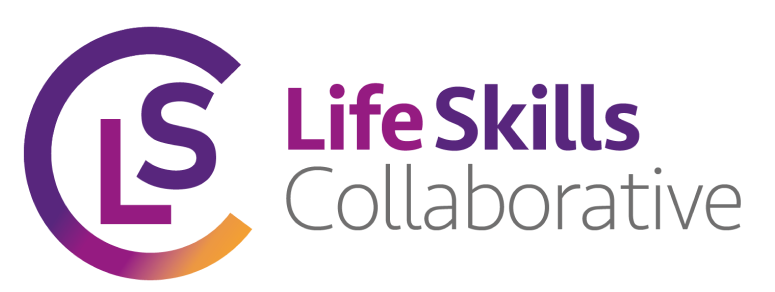- /
- /
-
Why should schools prioritise social and emotional well-being?
Why should schools prioritise social and emotional well-being?
Academic performance has always been one of the prime considerations in schools and the education landscape. Yet, of late, it has been identified that children after graduating from schools with high grades and entering the job market lack basic skills of stress coping mechanisms, peer interaction, grit, and empathy, to name a few. These in turn are manifested in their involvement in a host of negative social events in addition to their constant struggle to achieve academic and professional excellence. A growing body of evidence from global research and practice indicates that the time has come to re-envision the schools and the educational landscape including components of social and emotional learning (SEL) and development. Since the beginning of the new millennium, SEL competencies have become one of the prime components of school reform (Zins, Walberg, & Weissberg, 2004)[1] and it is worthwhile to mention that SEL competencies are those which help in recognizing the emotions in self and others and includes measures to manage, regulate and use them as and when required.
Mapping the core SEL Competencies
One of the earliest frameworks to SEL was propounded by The Yale Child Study Center during the initial years of the new millennium, as the “Promoting Alternative Thinking Strategies” Program[2] under the leadership of Dr Maurice Elias designed for Pre-Kindergarten to Grade 5 students focusing on five domains – self-control, emotional literacy, social competence, positive peer relation and interpersonal problem-solving. Similar attempts have been made by Collaborative for Academic, Social and Emotional Learning (CASEL) in the 2000s promoting core competencies of self-awareness, self-management, social awareness, relationship skills and responsible decision-making as key components of education.
Countries like ours have also started incorporating components of social-emotional competency in their K-12 education ecosystem. The recent National Curriculum Framework for the Foundational Stage (2022)[3] constituted for India which is embedded in the core principles of the National Education Policy 2020 is worth mentioning. It envisages the purpose of the education system to develop rational and good human beings possessing the attributes of compassion, empathy, courage, resilience, and scientific temper with high ethical values. Having recognized the sensitivity of the early years of a child’s growth in developing cognitive, social-emotional and linguistic skills, the role of stimulation experiences guided by organised play-based activities play an essential role in facilitating the observational, listening, watching, interacting, thinking and communication skills in the children and therefore turn out to be an effective method for the holistic development.
The essence of incorporating the SEL competencies alongside age-relevant numeracy and literacy skills is to highlight the importance of the learning environment and the need for the teachers to establish caring relationships with the students to promote similar kinds of interpersonal relationships for their students with others. Proper manifestation of incorporating such skills in the children in school on one hand would direct their attention from negativities and help children focus amidst the many distractions that exist.
What needs to be done?
The preceding discussion is indicative of the fact that competency of identifying the emotional strength in oneself and others and managing, regulating and using them as per requirement emerges to be one of the key triggers of holistic development in a child. The following pointers could guide in ensuring social and emotional well-being in a child.
- Integrate SEL with the school curriculum
Adhering to global research which mentions that the first 8 years after birth are crucial in a child’s development, the process of instilling emotional regulations for holistic development can be initiated at the school level. However, absenteeism needs to be checked and the dropout rates need to be controlled to ensure that every child participates in the interventions planned for their social and emotional well-being.
- Nurturing SEL competencies amongst secondary caregivers
Teachers play a crucial role in instilling SEL competencies in children as they spend less time with family members and more time with their peer groups in schools and other learning spaces. Adequate measures should be taken to train them so that they can identify the social and emotional requirements of the children. In addition, the well-being of such caregivers also needs to be ensured.
- Acknowledge that every child is different
Though recent years have seen a surge in the policy prescription in incorporating such interventions in the curriculum for school children, straight-jacketing such efforts could prove detrimental. The SEL requirements of children need to be identified from an intersectional lens of demography, culture, economy, geography etc.
- Concurrent monitoring and assessment of the SEL competencies
In addition to planning interventions that would help instil social-emotional competencies in children, efforts need to be put into a proper assessment of how such skills are being developed temporally. Standardised metrics need to be designed that would help measure the development of the SEL competencies longitudinally. Course correction measures may be suggested once the performance of children is mapped and documented.
A brief biography of the authors
Dr Sweta Bhusan is a development professional with a specialization in research, documentation and impact assessments. Her interests lie in working with children, adolescents and the elderly population at the grass-root level and being part of programs that impact their overall well-being.
LinkedIn | Twitter
Dr Sreehari Ravindranath is the Associate Director of Research and Impact at Dream a Dream, Bangalore. He is a passionate researcher and educator with a mission to reimagine education in India. He is specialized in pedagogies of social and emotional learning and well-being, education in emergencies, and thriving in Adversity.
LinkedIn | Twitter
[1] Zins, J. E., Walberg, H. J., & Weissberg, R. P. (2004). Getting to the heart of schools reform: Social and emotional learning for school success. NASP Communiqué, 33(3), 35.
[2] Available on https://files.eric.ed.gov/fulltext/ED611242.pdf, accessed on 20th January 2023
[3] Available on https://ncert.nic.in/pdf/NCF_for_Foundational_Stage_20_October_2022.pdf, accessed on 20th January 2023



